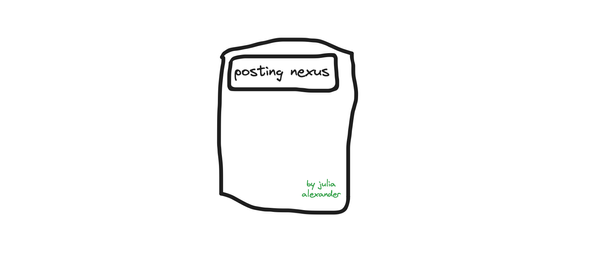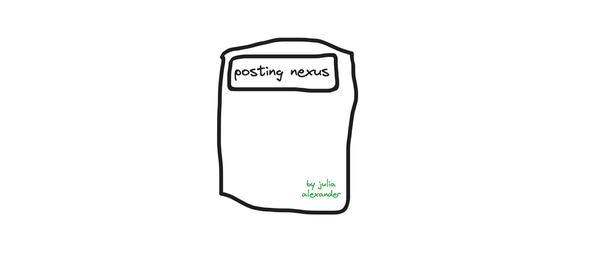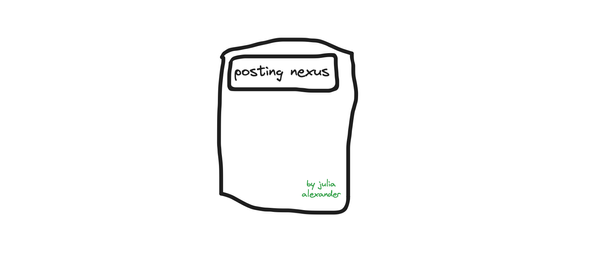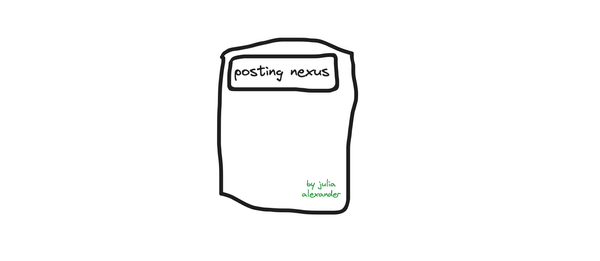Here's What the Fight For Your Attention Really Looks Like
One of the largest problems personified by the internet is shifting joy into competition. How does the dissolution of the line between personal and professional time impact our willingness to connect outside of our phones?
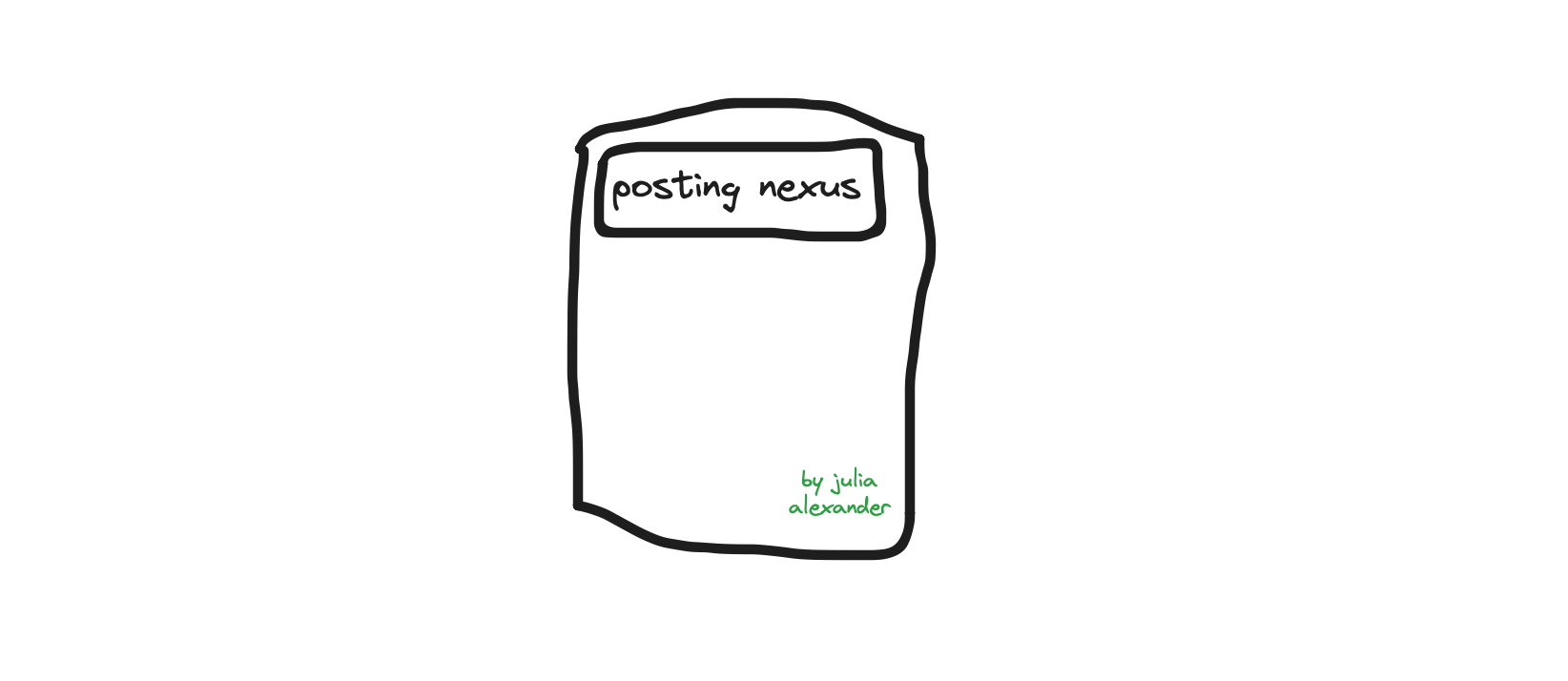
I used to look at Goodreads to see what books my friends were reading to get a better idea of what to buy next. I look at Goodreads now to see how many more books I need to read to beat a nonsensical predetermined goal I set for myself based on the Instagram stories my friends posted at the end of 2023. I haven’t changed the types of books I read, but I feel an overwhelming sense of dread when picking up another 600-page book on the history of something knowing it will impact my final tally. Ill.
I was thinking about the gamification of our leisure time earlier this week while talking to a friend who’s an executive at an entertainment company lamenting that they didn’t have enough time to keep up with any trend over the last couple years let alone new ones. A new superstar actor who debuted in a Netflix movie? Didn’t want to keep up, but the movie was all over Instagram. The latest book flying off the shelves? Not a big reader but their favorite podcaster said it’s what everyone is obsessing over. Connection is consumption, and consumption is quantifiable. We create list after list of unbeatable goals. It’s such a renowned feeling that we have memes over our gaming and book back catalogs that we ignore in the pursuit of buying something new that we promise to play or read by year end. As my buddy said to me, “I feel very congested. Too many things to watch, too many conversations to keep track of, too many pods, too many articles, too many things that can be done.
“There’s a disconnect going on that’s kind of dragging my soul down a bit despite all the good that’s going on.”
He didn’t say it, but the problem that we’re all encountering is shifting joy into competition. The one period of time we’ve dedicated to not tracking performance has become a form of ambition on par with our professional lives. The disconnect from personal to personal gain has completely dissolved. I mentioned to my friend that I remember the exact moment I realized that I went from asking myself “what books did I like this year” to “how many books do I need to beat my previous goal?” It was a rot that I didn’t know I was carrying with me — and I know this isn’t unique to my anxious ass, either.
Look at how we’ve changed the capturing of the passing of time. Before we rewired our brains to connect personal with commercial, down time as wasted opportunity, we used to talk about our accomplishments as memories. We remember the marathon we ran, the little moments that made that day feel so significant. That marathon included training, but we didn’t hear too much about it day-to-day. Now, however, training for a marathon is the perfect opportunity to film yourself on the go, keeping track of the time it takes to run each mile, giving followers and viewers something to keep up with and compare themselves to as they train. They then pick up a camera and do the same thing. An endless cycle begins.
The one period of time we’ve dedicated to not tracking performance has become a form of ambition on par with our professional lives.
Trying to sort out why this is happening means looking away from our phones. I write a lot about the decline of third spaces. I acknowledge it may get annoying, but I think it’s one of the greatest societal crises of our time. A decline in third spaces directly leads to less face-to-face time with friends and valuable intimate connection. Spaces disappearing, however, does not remove that primal human instinct to find connection, to seek out validation, and to celebrate victories. Those third spaces are now social video platforms, but we don’t have actual connection with strangers we come across. We have parasocial relationships at best and a version of creative envy — something I like to refer to as blurry face envy — at worst that makes us less empathetic and more competitive. “A recent meta-analysis of 72 studies conducted between 1979 and 2009, for instance, found that the empathy levels of American college students have dropped 40 percent, which the authors primarily attribute to the rise of social media,” according to the Luiss Business School in Rome.
Consider Spotify Wrapped, a marketing tool designed to celebrate time spent listening to music or podcasts that have shifted into competitive realms and altered what we choose to listen to later in the year. When looking at Google Trends spikes over the last five years, the top four breakouts consist of Spotify Wrapped 2023, Spotify Wrapped 2022, Spotify Wrapped 2021, and Spotify Wrapped 2020. These spikes coincide with journalists and industry watchers noticing the proliferation of Spotify Wrapped on Instagram, X, and TikTok.
Although Spotify Wrapped launched in 2016, it wasn’t until the pandemic that people started really getting into the spirit. Our IRL connections dwindled, and our relationship to people on our screen felt more intimate even if it’s a fallacy. This isn’t because Spotify Wrapped suddenly offered subscribers insights into their listening habits, nor was it because people wanted to go down memory lane. It was because the quantification of our listening habits put us into a class of a certain listener that we wanted to display. As my friend Ashley Carman, a brilliant reporter at Bloomberg, wrote about Wrapped in 2019, “Spotify users can revisit their top artists of the year, top songs, and, because 2019 also marks the end of a decade, their most consumed music over the past 10 years.” Top. Most. Consumed.
As qualitative validation all but erodes, the only form of validation left is quantitative. Miles run. Books read. Movies watched. Songs streamed. Beers bought. Fantasy wins. We have turned competition into connection because it’s the only way we’ve learned that we can get attention — and when you see a continuous decline in relationships outside of your phone because spaces continue to disappear, you’ll cling to whatever you can to feel like you belong to a larger world. That’s without taking into account how the platforms themselves use gamifying tactics, preying on emotional and physical impulses and serotonin boosts, to ensure that the little device in our hands connecting us to those competitive blurry faced strangers, feels more important than trying to form quality connections elsewhere.
The problem with quantifying everything is that we can’t ever rest. Our end state is a growth state — a philosophy that defines corporate America boardrooms and shouldn’t inhabit our bedrooms or morning coffee. As I wrote last week:
“It’s the philosophy that guides modern capitalism. You aren’t ever profitable enough. You aren’t ever big enough. You’re never efficient enough. It’s why a company’s stock can tank in the minutes after an earnings release is published: even if the quarter beat records, guidance on a slower quarter ahead turns everything tipsy turvy. You’re only as good as your next three months. Consistent growth, even if it’s microscopic in measurement, is the end state, meaning that there is never an end. We call this infinity. But the problem is that growth for companies comes from mining resources — including attention — is that it’s inherently finite.”
This mindset inherently changes our approach to our own enjoyment. They may seem silly, but over time they leave a mark. Reddit is full of people asking for short book recommendations because they need to meet their goal, not necessarily because they’re interested in that particular book or writer. When you take on a public goal, not completing it becomes a public failure in your mind even if no one else particularly cares. All that matters is keeping up the appearance of being the person you project yourself to be.
We no longer know how to sit at peace with time. That time must be spent on beating a goal
Gamifying our life isn’t a new story. There are articles every few years about how approaching our hobbies with measurement in mind instead of relaxation is turning our leisure into labor. We are on the precipice, however, of the next wave of technology furthering these quantifiable moments of our day. The use of LLMs to turn 100 pages into 50 pages will allow people to read faster. The use of 3x speed on podcasts will allow us to consume more. Smart Glasses, like Meta’s Orion, or headsets like Apple VisionPro — while years away from becoming mainstream technology — will allow us to watch more movies, play more games, and complete more goals. These activities will start as passive leisure, but developers and brands will find ways to turn these into quantifiable missions.
Not even our sleep is safe. Nintendo recently announced “Alarmo,” a very cute alarm clock that uses motion tracking to play different sounds from various Nintendo games to help getting out of bed easier. Move to the left, and the sounds of Super Mario coins ring. Move again, more coins clanging. By the time you get out of bed, that little Italian plumber says “wahoo!” and there’s fanfare played by the clock. Beyond the fact that this is Pavlov’s Experiment meets Lexapro personified, the clock will also keep track of your sleep habits to better your sleep (good!) while encouraging better ways to get out of bed faster. It turns the act of getting up into a measurable goal. Even before the moment we wake up, we are surrounded by nothing but measurable goals. We no longer know how to sit at peace with time. That time must be spent on beating a goal, and when we check social media in an attempt to slow down our brains for a second, we are met with others posting about their own goals, making us feel that overwhelming sense of guilt and return to whatever act of our life we are in the midst of gamifying.
Despite more than a decade of people lamenting this shift from personal spare time to commercialized ambition, we haven’t slowed down. We’ve doubled down and sped up. Whatever the next wave of technology that competes for your attention is, it will find ways to further hook into our feelings of need for connection, need for attention, need to be seen, and need to grow in environments that we can control. Books read. Miles run. Movies watched. Podcasts heard. Games played. The subliminal beauty of these goals permeating in our day-to-day life is that they also have their hooks in our subconscious attention, where we ruminate, lament, and think about how to grow. Thinking about the thing even when we’re not doing the thing.
Maybe I’m blaming too much on technology, but we used to read a book before bed and go to sleep thinking about the story floating behind our eyes. Now we think about how many chapters we need to read before we can log it in Goodreads and pick up the next book. That’s a symptom of soulless hyper connection.
This is what the fight for attention and who controls your attention really looks like.

